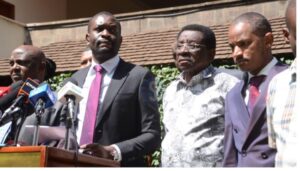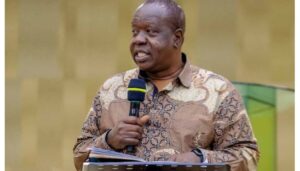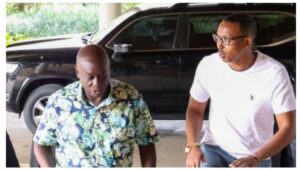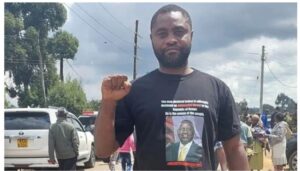Ruto forms a 12-member economic transformation team as he follows Kibaki’s footsteps

Ruto forms a 12-member economic transformation team of private sector leaders as he follows Kibaki’s footsteps
Ruto forms a 12-member economic transformation team of private sector leaders as he follows Kibaki’s footsteps.
In a strategy that closely resembles that of former president Mwai Kibaki, President William Ruto has enlisted the assistance of a wide range of corporate executives to help his administration carry out its economic program.
To help the National Investment Council develop methods to implement his strategy for equitable economic growth and development, Dr. Ruto has appointed a 12-person committee of private sector executives.
The strategy centers on strengthening economically disadvantaged communities using what he refers to as the “bottom-up economic paradigm” in a nation that is having difficulty filling quality positions with trained labor.
The National Economic and Social Council (NESC), which has been credited with the nation’s economic development during the Kibaki era, is mirrored in the team’s appointment, which is the first under the statute passed more than ten years ago.
Following the recommendations of NESC, the government’s socioeconomic think tank, Mr. Kibaki’s administration was able to boost domestic output from the paltry 1% growth he inherited from his predecessor to highs of 7% in 2007.
That brought in a period of prosperity that was characterized by increased tax receipts, raised living standards as indicated by GDP per capita, increased access to education, and improved infrastructure, such as roads.
Dr. Ruto has advocated for policies that will promote “rapid and inclusive socio-economic transformation” because he ran for office on a platform of promoting investments and financial instruments that specifically target millions of young people who are unemployed, micro-enterprises, and farmer groups.
The new team, which will take office on December 1 and serve for three years, has the responsibility of advising state and federal ministries on how to facilitate policies that will boost investment and economic growth.
Ruto’s economic transformation team
The appointees comprise KCB chief executive Paul Russo, managing director of M-Pesa Africa Sitoyo Lopokoiyit, Liaison Group managing director Tom Mulwa, his Gulf Energy counterpart Francis Njogu and World Bank Group’s senior private sector specialist for finance competitiveness and innovation global practice Sarah Ochieng.
GMO debacle hits Kenya’s horticulture exports in Europe
KNBS uncovers 230,935 workers earning Sh100,000 monthly unknown to the state
Others are the country manager for TradeMark East Africa Ahmed Farah, chief executive for Invest Africa Karen Taylor, partner at investment banking and financial advisory firm NISK Capital Shaila Kyarisiima, and Eva Warigia, the CEO of East Africa Private Equity & Venture Capital Association.
Prominent businesspersons David Lang’at of DL Group, Humphrey Maina of Africa Spirits Ltd, and Twiga Foods founder and CEO Peter Njonjo have also made the list of the powerful advisory team.
Mr. Lang’at, whose firm has interests across sectors including Nyali Centre in Mombasa and tea processing factories in Nandi and Kericho, is an ally of the President and is believed to have been one of his key campaign financiers.
The media-shy businessman, who is behind the proposed Sh200 billion industrial Park in Uasin Gishu, was on Ruto’s visit to Uganda’s President Yoweri Museveni ahead of August presidential polls.
Mr. Kariuki, whose business empire spreads to Janus Continental Group, the Hub Shopping Mall in Karen, and the Fairmont Mount Kenya Safari Club, is also known to be a close ally of the President.
The Council, chaired by Dr. Ruto, also has Treasury Cabinet Secretary Njuguna Ndung’u, Trade’s Moses Kuria, Mithika Linturi (Agriculture), Lands’ Zacharia Mwangi, Tourism’s Peninah Malonza and Soipan Tuya (Environment) as cabinet members.
They are also mandated to promote cooperation between the public and private sectors in the formulation and implementation of policies aimed at spurring investment and economic growth.
They are required to monitor progress in economic growth and development and consult experts for views on development.
Also read,
Police IG misses Ruto event after a security breach
Govt processes 22 Hustler Fund loans per second with Ksh 2.9 bn already disbursed
Ruto addresses complaints over low Hustler Fund limit
Follow us




